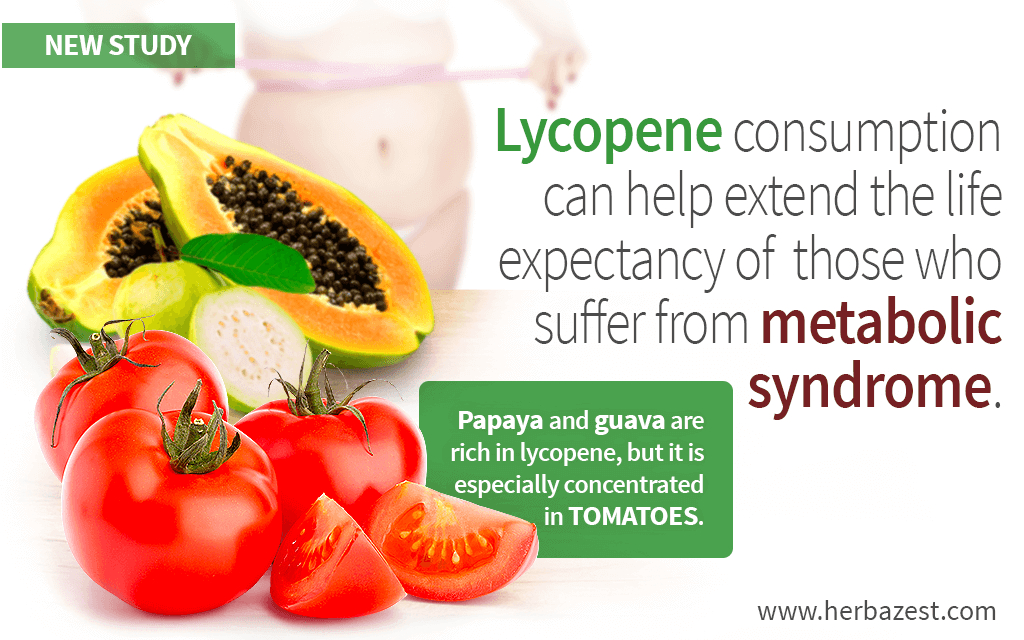There are several conditions that raise the risk for heart disease and other health problems, such as diabetes and stroke. Whenever these conditions concur, they are given the name metabolic syndrome. Since oxidative stress and inflammation are two factors that increase the risk of mortality in people with metabolic syndrome, the research has been focused on understanding the oxidation mechanisms in the human body, as well as how diet influences those processes.
Lycopene, contained in many fruits and vegetables, but highly concentrated in tomatoes, has previously been observed to reduce stress and diminish inflammation. Based on data from the National Health and Nutrition Examination Survey, a team composed of Guang-Ming Han, Jane L. Meza, Ghada A. Soliman, K.M. Monirul Islam, and Shinobu Watanabe-Galloway, all from the University of Nebraska Medical Center, decided to conduct a trial to test the effectiveness of lycopene in reducing the risk of mortality among patients with metabolic syndrome.
The Study
Based on their serum concentration of lycopene, 2,499 participants 20 years and older with metabolic syndrome were divided into three groups. Then, the data provided by the National Health and Nutrition Examination Survey from the years 2001 to 2006 were compared to the mortality follow-up data through December 31, 2011, to determine the mortality rate and hazard ratios for the three serum lycopene concentration groups.
The Results
The group with the highest serum lycopene concentration and the medium group showed survival times significantly higher than the group with lowest serum lycopene concentration.
What Does This Mean?
These results suggest that it may be a good idea to add more fruits and vegetables rich in lycopene - like tomato, guava, and papaya - to a healthy diet, since higher serum lycopene concentrations are related to a decreased risk of mortality among individuals with metabolic syndrome.
This article was published in the January 2016 issue of the journal Nutrition Research.
Sources
- Nutrition Research, Higher levels of serum lycopene are associated with reduced mortality in individuals with metabolic syndrome, 2016





